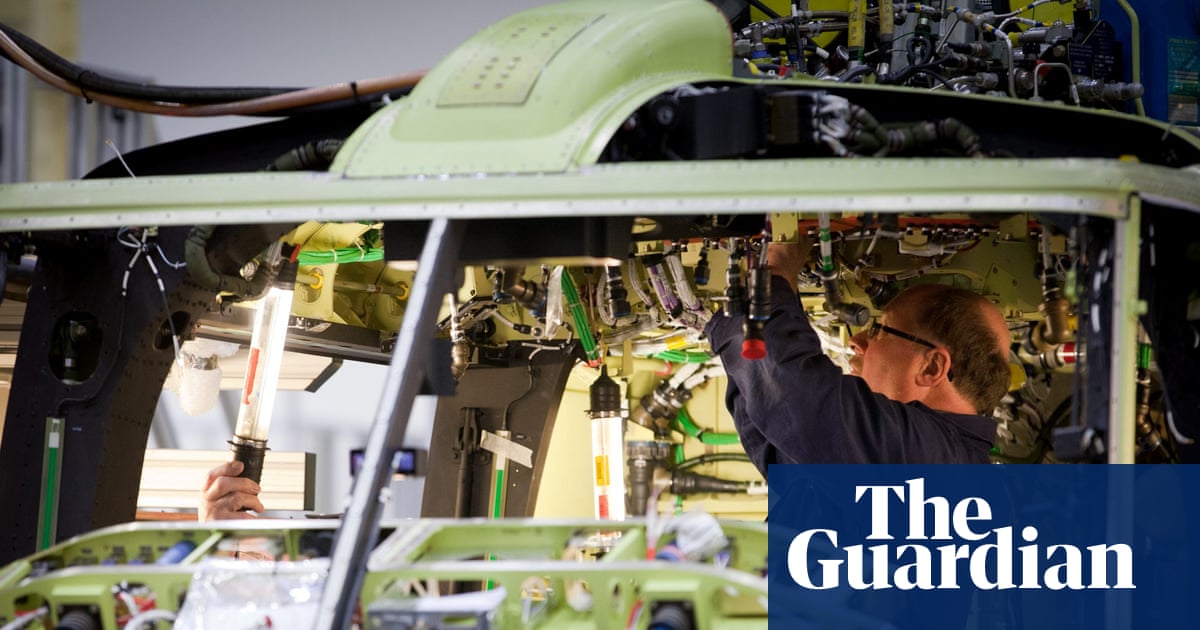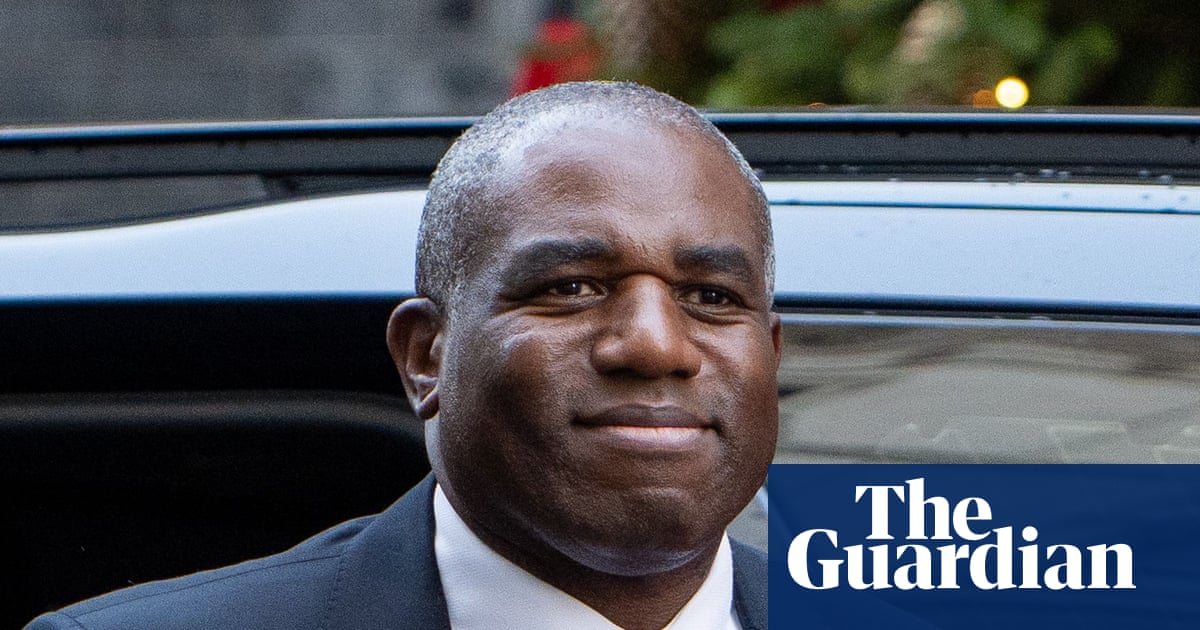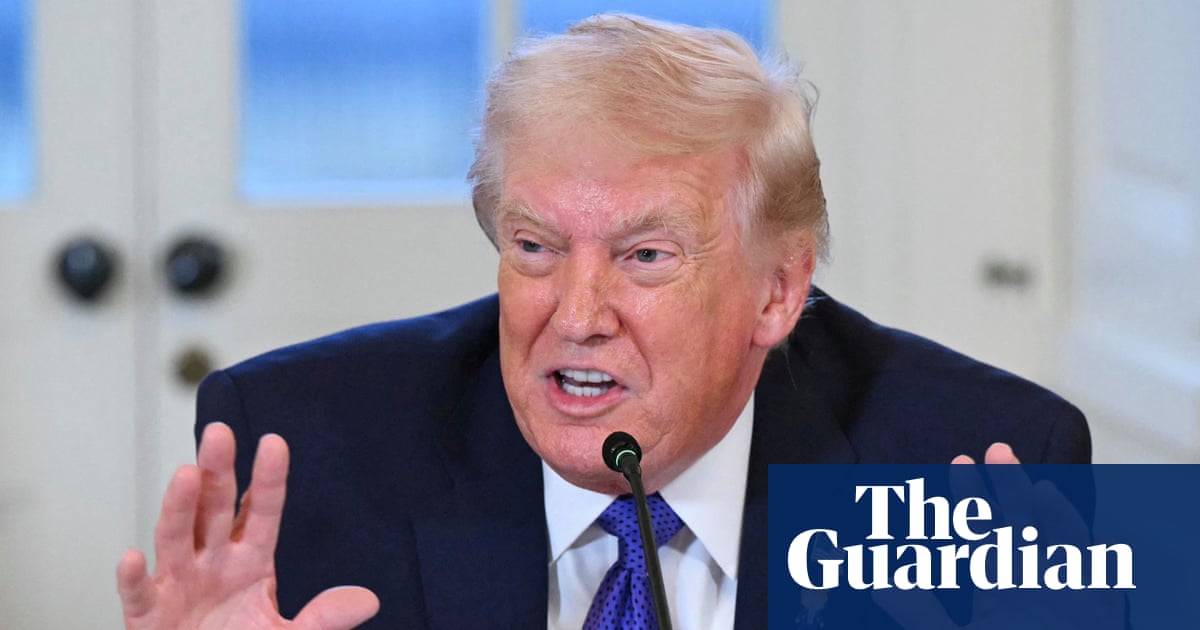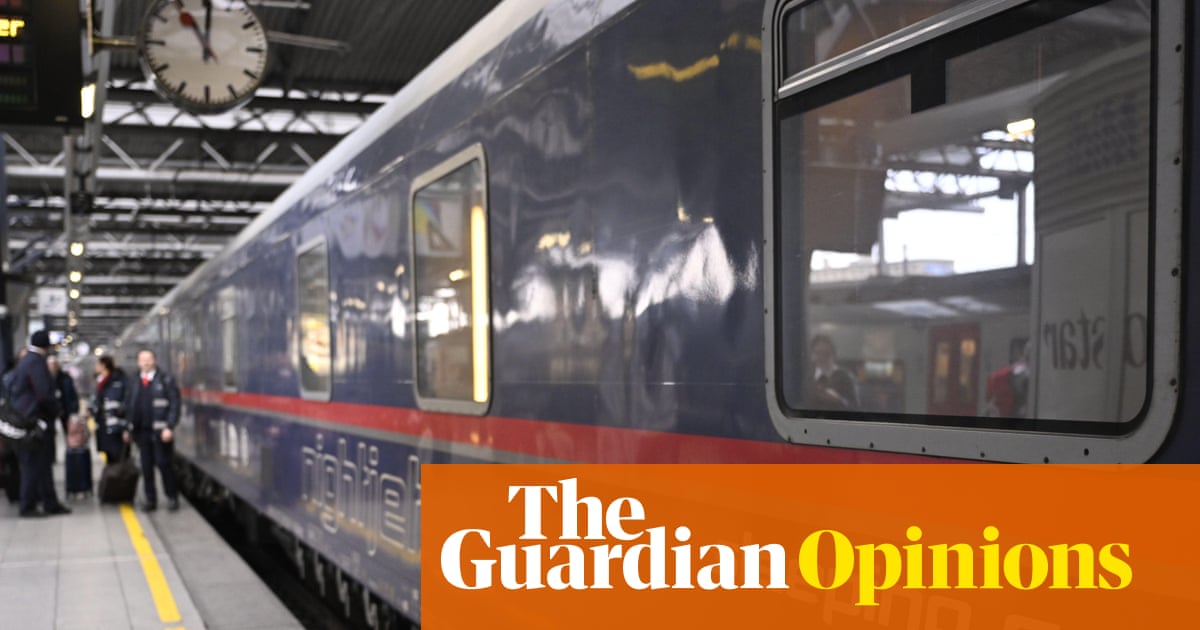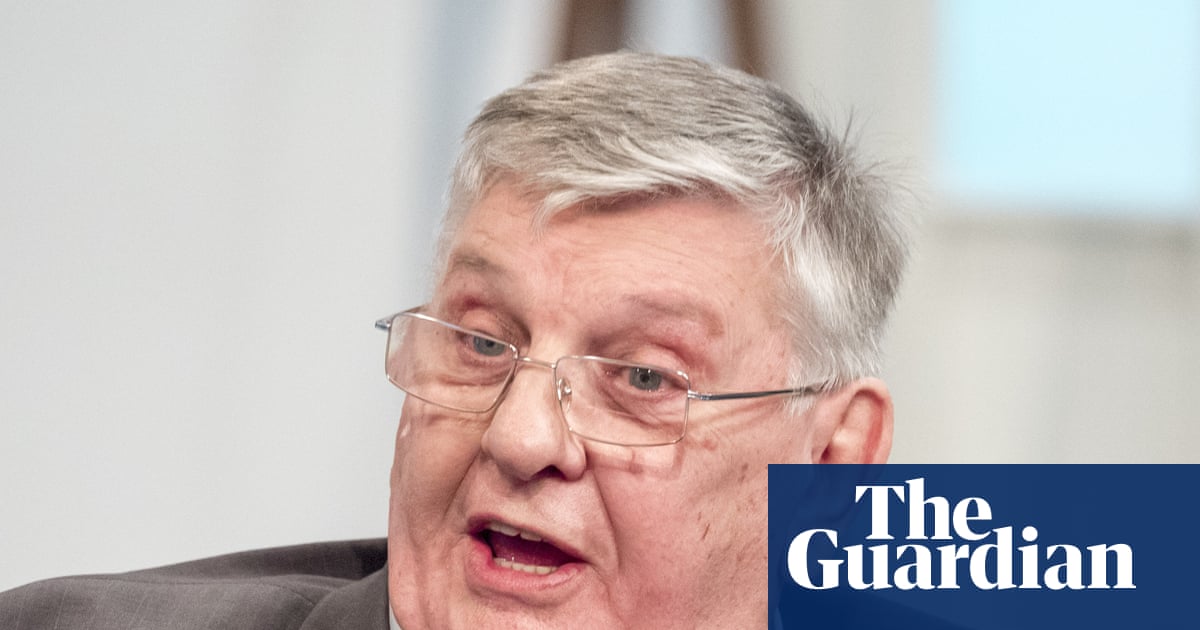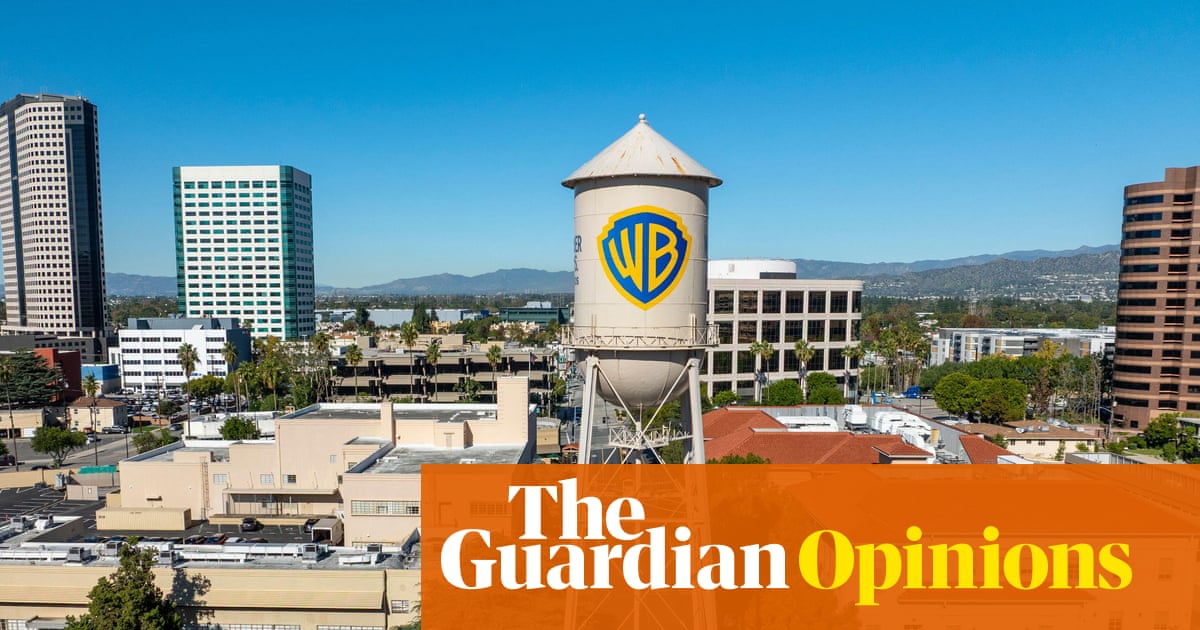The announcement features some of the biggest names from Silicon Valley: the chipmaker Nvidia; the ChatGPT developer, OpenAI; and Microsoft. Big numbers were involved, with Microsoft hailing its $30bn (£22bn) investment as a major commitment to the UK – and adding, in an apparent swipe at its rivals, that it was not making “empty tech promises”.
Here is a breakdown of the announcements in the UK-US “tech prosperity deal”, spelling out what is explicitly new in them.
1. Microsoft invests $30bn in UK
Microsoft’s president, Brad Smith, hailed the “single biggest announcement” in the pact and insisted it was not an empty promise. The $30bn (£22bn) sets out the company’s UK budget over the next four years and refers not just to artificial intelligence infrastructure but also “ongoing operations” across the UK.
Microsoft said the number included $15bn in capital expenditure – such as on equipment, land and buildings – for AI and cloud services, areas where datacentres are key components. The other half will go on day-to-day operations such as research, sales and product development.
As part of the package, the US company said it would back an already announced project, an AI datacentre in Loughton, Essex, by becoming a core customer of its owner, the UK-based AI infrastructure company Nscale.
Smith had criticised the UK in 2023 as being “bad for business” after Microsoft’s takeover of the video games maker Activision was blocked – a move that was later unwound. He told reporters on Tuesday that Microsoft had been “encouraged” by steps taken by the governments of Rishi Sunak and Keir Starmer, with the latter helping on planning permission and energy access.
“We have a more stable opportunity to accelerate investment in the UK,” Smith said.
The £22bn is a significant chunk of the £31bn value the UK government placed on the pact, which also includes £5bn of expenditure from Google that the search company described as “additional investment over the next two years”. The Google figure includes capital expenditure, research and development, and related engineering, as well as work at the AI unit Google DeepMind.
2. AI growth zone in north-east England
The north-east will host an AI “growth zone”, an area that will receive special support in planning permission and energy provision for hosting AI infrastructure such as datacentres. The government said this could unlock more than 5,000 jobs and bring in £30bn in investment, although this is all hypothetical for now.
One of the datacentre sites, Blyth in Northumberland, has already been announced and is receiving £10bn in financial commitment from the US investment firm Blackstone.
The other site mentioned, at Cobalt Park in North Tyneside, features a new development: a domestic version of the US “Stargate” datacentre project championed by Trump. Nscale, OpenAI and Nvidia will develop a platform that will deploy OpenAI’s technology in the UK. The idea is that Stargate UK will help develop “sovereign” AI, where cutting-edge technology is developed and used in the UK’s interests.
As part of the first phase of Stargate UK, OpenAI will use 8,000 Nvidia graphics processing units (GPUs), the powerful computer chips that underpin AI tools such as ChatGPT. Cobalt Park will be one of several UK sites under the plan.
3. Nvidia’s £11bn announcement
Nvidia, the world’s biggest AI chipmaker, touted an £11bn injection into the UK economy as part of the pact, providing up to 120,000 of its powerful Blackwell GPUs to projects that will be built over the next couple of years in the UK. So, there is a degree of overlap with other announcements in the pact.
Clarifying its investment on Wednesday, Nvidia said the £11bn referred to the total “end-to-end value” its partners were delivering, encompassing the chips they have bought from Nvidia, land and buildings involved in constructing the datacentres, and supercomputers that will house the GPUs. Nvidia, at $4tn the biggest company in the world’s biggest economy, is also investing £500m in Nscale.
4. Other announcements
CoreWeave, a US datacentre company, said it would invest a further £1.5bn in the UK including a site in North Lanarkshire, Scotland. The US software company Salesforce is investing an additional $2bn in the UK, adding two years to a financial commitment to the UK that will now run to 2030. Nvidia will also invest an undisclosed amount in the UK’s AI startup scene.
5. Tech-boss influx
The pact, and Trump’s visit, is being accompanied by an entourage of US tech bosses, with the chief executives of Nvidia, Microsoft and OpenAI travelling across the Atlantic to symbolically reinforce their ties to the US president. Since Trump has been in power, US tech leaders have lined up to express loyalty and support for him and this is another opportunity to do so – as well as to support the projection of US leadership in AI. Tim Cook, the chief executive of Apple, is also reportedly attending Wednesday’s state banquet.
6. AI and energy
The government claims that the US-UK agreement will “turbocharge” the UK’s low-carbon economy by encouraging the build-out of new nuclear power stations to power the datacentres and supercomputers that underpin the technology.
Specifically, the tech pact is expected to bring forward multibillion-pound investments in new nuclear technologies, which would create thousands of jobs under a string of separate transatlantic agreements revealed earlier this week.
These new pledges build on Starmer’s existing plan for a once-in-a-generation nuclear expansion that he revealed earlier this year alongside an open invitation to tech companies such as Google, Meta and Amazon to invest in AI datacentres in Britain, which could be powered by small modular reactors.
Growing the UK’s low-carbon energy supplies is considered essential if it hopes to host the energy-hungry datacentres required for an AI industry while staying within its net zero carbon budgets. But it will need to add enough new low-carbon energy generation to match the needs of the datacentres, as well as the growing demand for electricity from the rest of the economy, if it hopes to avoid adding extra gas power to the energy system in the future.
Many global tech companies, which are also under pressure to satisfy their own carbon-cutting commitments, are turning to nuclear power because reactors generate electricity at a steady rate, which mirrors the energy use of a datacentre. This summer, Meta signed a 20-year deal with a nuclear power station in Illinois, while Amazon and Google are also investing in nuclear energy in the race for AI dominance.
Still, the latest AI plans are likely to raise further questions over the UK’s under-pressure water supplies – which are needed to cool down some energy-intensive datacentres.

 3 months ago
161
3 months ago
161



